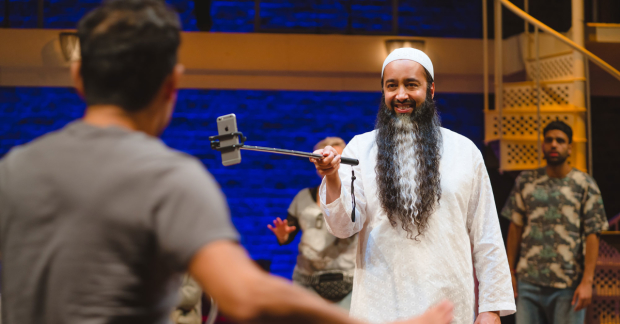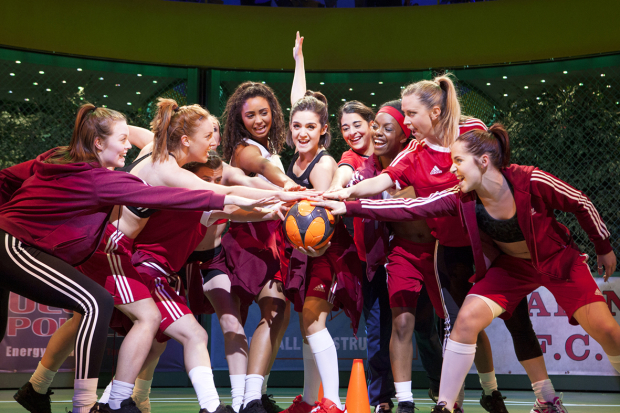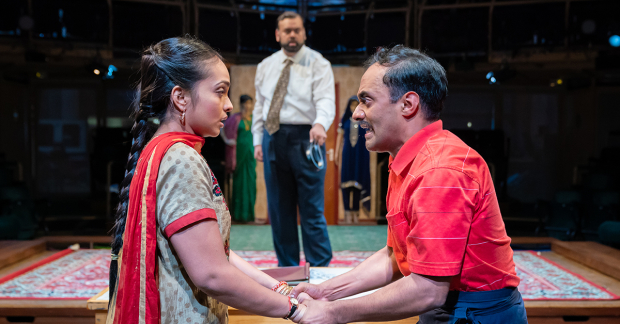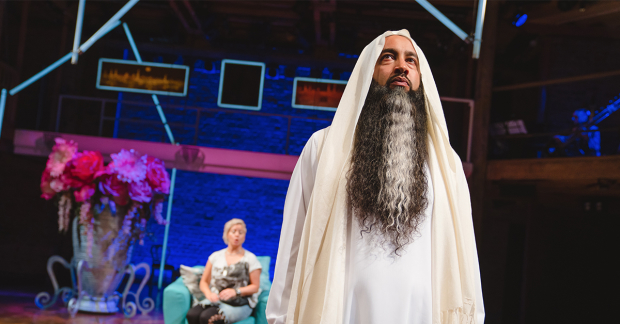Multi-cultural experiences on stage – is theatre reflecting modern society?
Which new productions are offering realistic snapshots of Britain in 2020?

© Topher McGrillis
Thinking about how British Asian experiences are currently portrayed in mainstream culture, it is interesting that of all Gurinder Chadha's films there is arguably none as iconic as Bend it like Beckham. Adapted four years ago into a highly successful West End musical, the production has achieved more than just cult status however. While being undeniably hilarious, it also portrays the serious issues that arise when individuals feel caught between two worlds – racism and the horrific treatment of immigrants are at the forefront of her story.

© Ellie Kurtz
Ayub Khan Din's East is East could be considered the other side of the coin to Chadha's classic. The iconic culture clash play premiered at the Birmingham Rep over 25 years ago and its success led to a film adaptation. In all the years since, it remains a seminal production that brought Asian culture into the mainstream.
East is set in the 1970s however, so it is important to ask where are the stories for the here and now – which writers are depicting life for British Asians in a post-Brexit society, a country where anti-immigration rhetoric and race hate have become alarmingly prevalent. Even a film like Four Lions that feels modern was released seven years before the referendum, and for all the beauty of Tanika Gupta's Ugandan-Asian adaptation of Hobson's Choice, which played at Manchester's Royal Exchange last year, the story is still set in 1980s Britain.

© Marc Brenner
Shamia Chalabi and Sarah Henley's Burkas and Bacon Butties opens soon at the Park Theatre and channels the generational conflicts of previous classics into a modern setting. A story about a Muslim father and daughter living in Wigan, Burkas depicts the challenges as well as the respect and tolerance that can arise from living in a multi-cultural family in Britain. As a person of mixed heritage growing up in a small northern town, Chalabi felt that her personal experience "isn't one that I've seen reflected very often, if at all, on stage" and as such she wanted to show "the comedy that is born out of the culture clash, the compromises and occasional lies that are told in order to keep the plates spinning."

March also sees the transfer of Tartuffe from the Swan Theatre in Stratford-upon-Avon to the Birmingham Rep, an adaptation of Molière's religious comedy penned by Richard Pinto and Anil Gupta (Citizen Khan, The Office, The Kumars at No 42). In setting this version in one of Birmingham's Pakistani communities, director Iqbal Khan was keen to maintain the religious context for the play and also reflect the communities as he saw them: "The original version that Anil and Richard wrote was more like a traditional, Asian sitcom. Almost everyone apart from the cleaner were brown so one of the first things I said to them was that I was very keen that the community we explored look more realistic. There aren't exclusive brown zones, people mix and elide."

© Topher McGrillis
Burkas and Tartuffe rely on real life experiences at both the writing and production stages, and utilising the experience of an entire rehearsal room will surely offer a realistic snapshot of life in Britain today. The truth shared will in turn hopefully speak to a much broader audience. As Khan suggests, "One of the biggest jobs of theatre is to cut against the lie of the homogeneous representation of communities. That isn't true of any community and it certainly isn't true of the Islamic community."


















